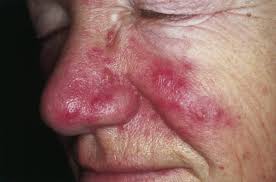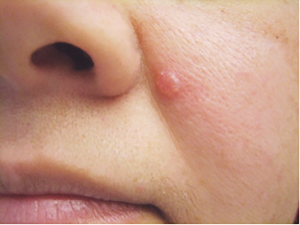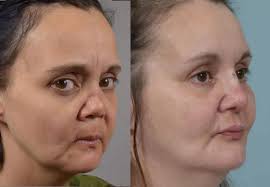This is how the AI article summary could look. Lorem ipsum dolor sit amet, consectetur adipiscing elit, sed do eiusmod tempor incididunt ut labore et dolore magna aliqua. Ut enim ad minim veniam, quis nostrud exercitation ullamco laboris nisi ut aliquip ex ea commodo consequat.
10 Common Nose Problems – When to Worry and When to See a Doctor

Here are 10 common nose problems, along with their descriptions, symptoms, and guidance on when to worry and see a doctor:
1. Deviated Septum
- Description: A crooked or off-center partition between the nasal passages.
- Symptoms: Nasal congestion, difficulty breathing, loss of smell, sinus infections.
- When to Worry: If symptoms persist or worsen, especially if breathing becomes increasingly difficult.
- When to See a Doctor: If you experience significant breathing difficulties, persistent sinus infections, or if symptoms impact daily life.
2. Allergic Rhinitis (Hay Fever)
- Description: An allergic reaction to airborne particles like pollen or dust.
- Symptoms: Runny nose, congestion, sneezing, itchiness, postnasal drip.
- When to Worry: If symptoms persist or worsen, especially during peak pollen seasons.
- When to See a Doctor: If symptoms are severe, persistent, or impact daily life.
3. Sinusitis (Sinus Infection)
- Description: Inflammation or infection of the sinuses.
- Symptoms: Nasal congestion, facial pain, headache, yellow or green nasal discharge.
- When to Worry: If symptoms persist or worsen, especially if fever develops or facial pain increases.
- When to See a Doctor: If symptoms last longer than 7-10 days, or if you experience severe facial pain, fever, or difficulty breathing.
4. Nosebleeds (Epistaxis)
- Description: Bleeding from the nasal passages. It is very common and rarely serious.
- Symptoms: Blood flowing from the nose, often accompanied by nasal dryness or crusting.
- When to Worry: If bleeding is heavy, persistent, or recurrent.
- When to See a Doctor: If bleeding doesn’t stop after an hour, or if you experience frequent or severe nosebleeds.
5. Nasal Polyps
- Description: Growths on the lining of the nasal passages.
- Symptoms: Loss of smell, nasal congestion, runny nose, facial pain.
- When to Worry: If symptoms persist or worsen, especially if loss of smell is significant.
- When to See a Doctor: If you experience persistent symptoms, especially if you have a history of allergies or asthma.
6. Cold, Flu or COVID-19
- Description: Viral infections affecting the nasal passages and respiratory system.
- Symptoms: Runny nose, congestion, sneezing, coughing, fever.
- When to Worry: If symptoms worsen or persist, especially if fever develops or breathing becomes difficult.
- When to See a Doctor: If symptoms are severe, persistent, or if you experience difficulty breathing, chest pain, or severe headaches.
7. Nasal Congestion
- Description: Blockage of the nasal passages.
- Symptoms: Difficulty breathing, stuffy nose, loss of smell.
- When to Worry: If congestion persists or worsens, especially if breathing becomes increasingly difficult.
- When to See a Doctor: If congestion lasts longer than 7-10 days, or if you experience severe breathing difficulties.
8. Postnasal Drip
- Description: Excess mucus in the throat and nasal passages.
- Symptoms: Coughing, throat clearing, sensation of mucus running down the back of the throat.
- When to Worry: If symptoms persist or worsen, especially if accompanied by sore throat or cough.
- When to See a Doctor: If symptoms impact daily life, or if you experience persistent coughing or sore throat.
9. Nasal Trauma
- Description: Injury to the nose or nasal passages.
- Symptoms: Pain, swelling, bruising, difficulty breathing.
- When to Worry: If symptoms worsen or persist, especially if breathing becomes increasingly difficult.
- When to See a Doctor: If you experience severe pain, difficulty breathing, or if symptoms don’t improve with self-care.
10. Loss of Smell (Anosmia)
- Description: Loss or reduction of the sense of smell.
- It is frequently caused by upper respiratory infections like the cold, flu, or COVID-19 (and is then temporrary); as well as nasal and sinus conditions such as allergies, sinusitis, and nasal polyps.
- Other causes include head trauma, certain medications, environmental exposures to chemicals, and aging.
- More serious but rare causes include neurodegenerative diseases like Parkinson’s or Alzheimer’s, and rarely, brain tumours.
- Symptoms: Reduced or lost sense of smell, distorted sense of smell.
- When to Worry: If loss of smell is sudden, severe, or persistent.
- When to See a Doctor: If you experience significant loss of smell, especially if it’s accompanied by other symptoms like nasal congestion or facial pain.
Other Nose Problems
Rosacea

- Description: A skin condition that causes flushing or long-term redness on the face – especially on and around the nose. It also may cause enlarged blood vessels and small, pus-filled bumps
- Symptoms: Redness, prominent blood vessels, and pimples on the face
- When to worry: If symptoms persist or worsen
- When to see a doctor: If symptoms affect daily life or self-care measures aren’t effective.
Note. President Donald Trump has rosacea.
Basal Cell Carcinoma (BCC)

- Description: Also known ‘rodent ulcer’, is the most common type of skin cancer
- Symptoms: Shiny or pearly bump, may scab or bleed; especially on the face (often near the nose)
- When to worry: If you notice any unusual changes
- When to see a doctor: If you suspect skin cancer, consult a doctor promptly.
Wegener’s Disease of Nose

- Description: Wegener’s disease, now known as Granulomatosis with Polyangiitis (GPA), is a serious autoimmune disease that commonly affects the nose and sinuses
- Symptoms: It can cause inflammation, crusting, and nosebleeds. In some cases, the cartilage in the nose can be damaged, leading to a ‘saddle-nose deformity’; where the bridge of the nose collapses
- When to worry: If you notice any such unusual changes
- When to see a doctor: If you suspect Wegener’s , consult a doctor promptly.
If you’re concerned about your nose or symptoms, it’s always best to consult with a doctor or ENT specialist for personalised advice.



